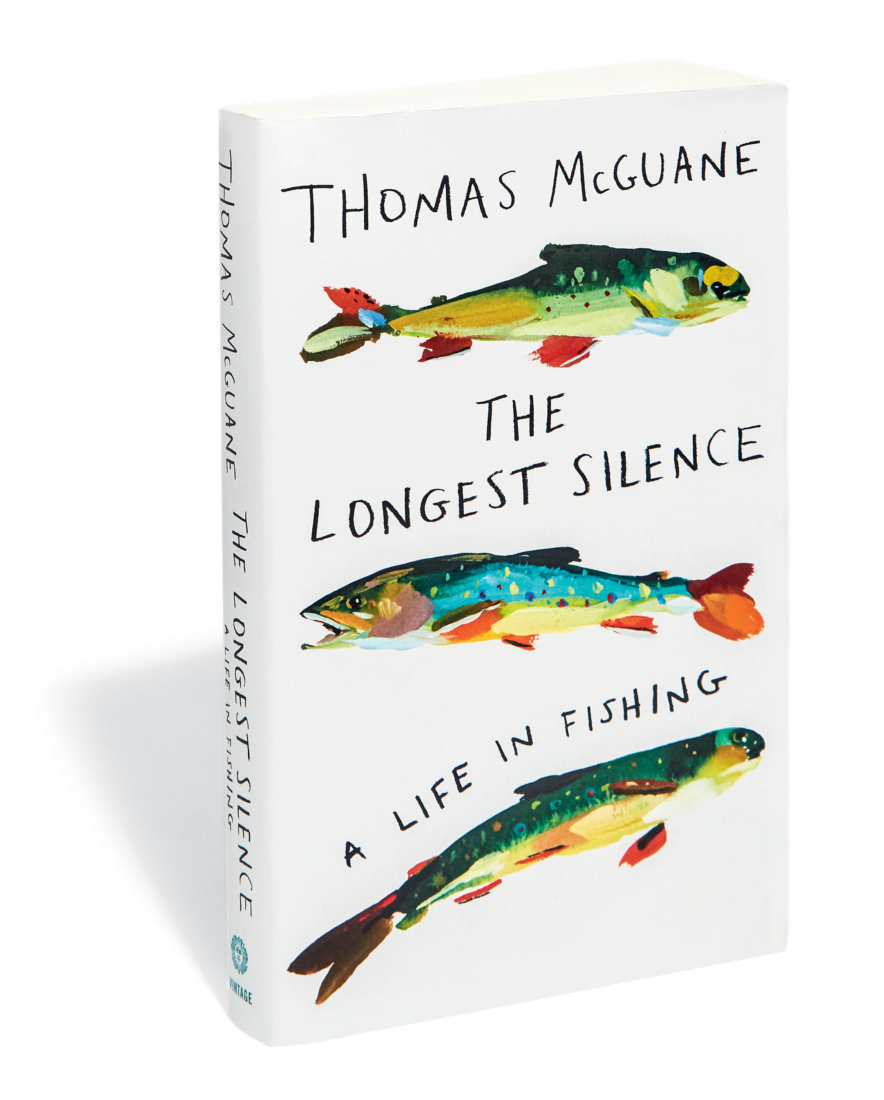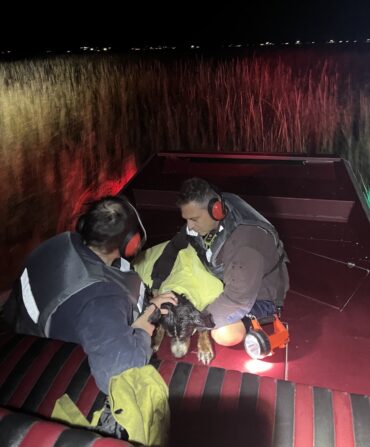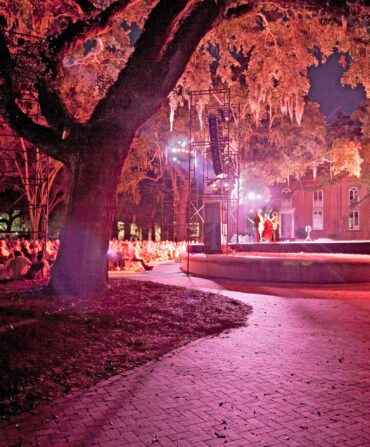Thomas McGuane’s The Longest Silence: A Life in Fishing, which is being reissued in February, is not a new book; most of it, aside from seven new essays, was first published in 1999. But twenty years is twenty years, which means thousands of otherwise literate anglers might conceivably be unaware of this masterpiece of fishing literature, might now be struggling to express streamside notions and sensations that McGuane articulated better than anyone since Roderick Haig-Brown. It deserves a refreshment of praise. The forty essays in The Longest Silence constitute a kind of trout-bum scripture in which the prescription for transcendence isn’t ritual or prowess but rather diligent immersion: “from air to water,” as McGuane writes, “from warm blood to cold, to a view of the racing universe and all its stars through a river’s flowing lens.” Step back from the water, and you realize that this degree of immersion—tenacious, alert, ardent—isn’t only worth applying to fishing. The Longest Silence is, at its heart, less a book about how to fish than how to live.
A few words about McGuane, before we rig up our rods. He is not, by trade, a fishing writer. He is a novelist and short-story writer (Ninety-Two in the Shade; Panama; The Cadence of Grass) whose linguistic fireworks once prompted Saul Bellow to christen him “a language star.” America’s best analogue to the work of Nikolai Gogol, his fiction fuses comedy and tragedy—often in the same sentence—and has the whooshing feel of a torpedo aimed at what he has called the “declining snivelization” of contemporary life. But McGuane is also an angler, and a world-class one at that (he once caught, and ate, a potential world-record mutton snapper on a fly), who has, almost from the beginning, lovingly chronicled his eight decades of fly fishing.
McGuane is a catholic angler, toggling between fresh and salt water with only a few limitations. “Moving water has, all my life, been the most constant passion I’ve had,” he writes. “It can be current or it can be tide, though it can’t be a lake and it can’t be mid-ocean, where I have spent baffled days and weeks more or less scratching my head.” In these essays, he hunts moving water in Michigan, where he was born; in Montana, where he’s lived for fifty years; in Key West, that “great and corrupt gardenia of an island” where he notoriously pushed the limits of fishing and hedonism; and in Ireland, Argentina, New Zealand, Russia, and elsewhere. McGuane is always, as he writes about Haig-Brown, “a man more interested in fish than fishing,” so his focus is rarely on the technical; the ploys of the fisherman are subordinate to those of the fish, many of which he accords the kind of deeply drawn portraits typically reserved for celebrities. Of the bonefish, he writes, “he seems so perfectly made for both his terrain and my needs as a fisherman that he has the specificity of design seen in experimental aircraft.” The selective trout, he writes, “is that uncompromising creature in whose spirit the angler attempts to read his own fortune.”
The line between fly fishing and religion may be tippet thin, and McGuane doesn’t shy from the holy aspects. But his sense of humor is too vivid and renegade for dutiful reverence to creep in. Farting in the pew is a fond habit of his. That droll, cockeyed tilt, the way he gleefully punctures orthodoxies and pomposities, along with the wild vibrancy of McGuane’s prose, is what makes these essays feel so tonic and vital, even after twenty years in the barrel. (Likewise the seething undercurrent of ecological anger that runs through many essays: “If the trout are lost,” he writes in one, “smash the state.”) What makes them feel timeless, however, is the way McGuane captures and examines the deep essence of angling, its “solace, exuberance, and absorption,” that intersection “where ancient human instincts encounter nature at its most profoundly cyclical and mysterious.”
“The more we fish,” he writes, “the more weightlessly and quietly we move through a river and among its fish, and the more we resemble our own minds in the bliss of angling.” This is immersion, for McGuane, and it’s how the bliss of angling can illuminate one’s life, or like a current run through it. In The Longest Silence, now as ever, that bliss floods every page.









